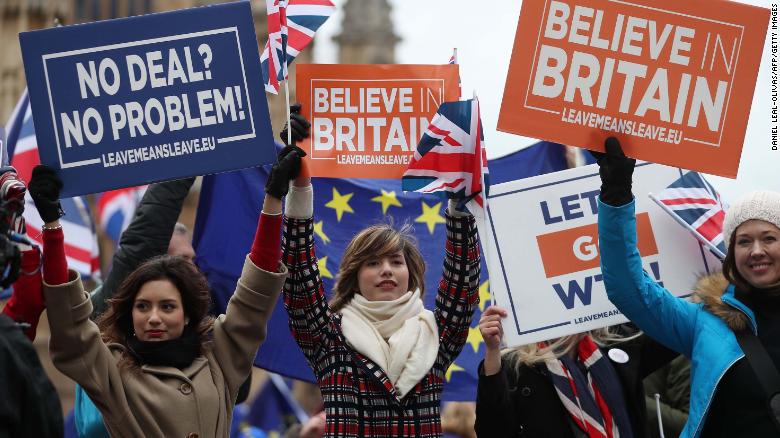
- The UK Government’s Brexit deal was rejected by the British lawmakers by 432 to votes.
- The government now has to win a no-confidence motion to prevent an election.
- With the brexit date set for 29th March, there’s no time for this as more loss of time means more uncertainty on a feasible Brexit deal.
- The EU Council, on the other hand, wants an immediate answer if a Brexit deal is possible or not.
- With only 73days left before Britain leaves the EU, the air of uncertainty looms
In the biggest defeat for the UK government in the modern parliamentary era, the British Prime Minister’s Brexit deal has been decisively rejected by the British Lawmakers, reports CNN.
How did it happen?
After 200 speeches across eight days of debate, members of the House of Commons ignored the Prime Minister’s final pleas to support her plan and threw it out by 432 votes to 202.
The margin of defeat — greater than the previous record set in 1924 — means the Prime Minister now faces a deep political crisis with no clear way forward.
Labour leader Jeremy Corbyn called the defeat “catastrophic” and said a vote of no-confidence would allow the House of Commons to “give its verdict on the sheer incompetence of this government.”
But she urged lawmakers to listen to the British citizens who voted to leave the EU. “I ask members on all sides of the house to listen to the British people, who want this issue settled, and to work with the government to do just that,” the British Prime Minister said.
What happens now?
The Prime Minister has 24hrs to gather votes in order to survive the vote of no-confidence so that the elections are averted.
If she survives, however, the PM said she would follow a two-stage process to break the Brexit impasse. First, she offered cross-party talks with lawmakers as an attempt to try and figure out a way forward. She promised the government would approach those talks in a “constructive” manner.
Then, if a consensus emerges, she would take a revised plan to the European Union.
No Clear Options for Brexit
But there isn’t much time: Britain is due to leave the EU on March 29, whether a deal is in place or not. “Every day that passes without this issue being resolved means more uncertainty, more bitterness and more rancor,” the Prime Minister has said.
DUP leader Arlene Foster welcomed Tuesday’s vote, saying the UK parliament had “acted in the best interests of the entire United Kingdom.”
Foster added: “Whilst some may wish to use this defeat to boost their political ambitions, we will give the government the space to set out a plan to secure a better deal.”
In a statement, Tusk said: “We will continue our preparations for all outcomes, including a no-deal scenario. The risk of a disorderly exit has increased with this vote and, while we do not want this to happen, we will be prepared for it.”
In a tweet, Tusk also pointed out that the UK could unilaterally withdraw its notification to leave the EU: “If a deal is impossible, and no one wants no deal, then who will finally have the courage to say what the only positive solution is?”
What led to this uncertainty?
Tuesday night’s vote was the product of more than two and a half years of tortuous debate and negotiations after 51.9% of British people voted to leave the EU in 2016.
Untangling a 45-year marriage was not as easy as some Brexiteers claimed it would be. Particularly when it came the contentious Irish backstop — an insurance policy to prevent the return of border infrastructure between Northern Ireland and the Republic of Ireland — which has been a thorn in the side of PM’s deal.
It’s hard to see an obvious way out of the mess. Even if a consensus can be reached in parliament, there’s no guarantee the EU would agree to reopen negotiations.
If no agreement can be reached, and the UK edges towards crashing out of the EU without a deal, it’s possible the government could collapse
Another possibility is that parliament could force a second referendum, or — least likely of all — scrap Brexit altogether.
The only certainty is that with just 73 days left before the country is due to leave the EU, the UK is no closer to knowing what will happen.
Did you subscribe for our daily newsletter?
It’s Free! Click here to Subscribe!
Source: CNN




























